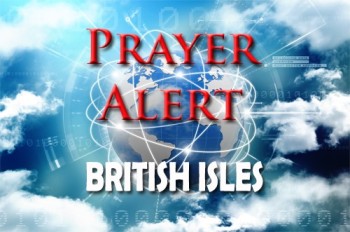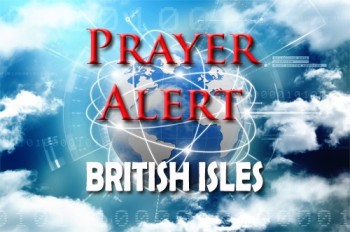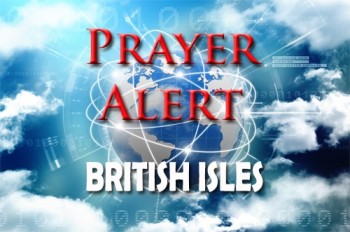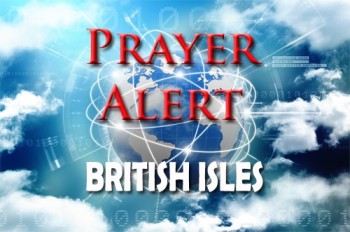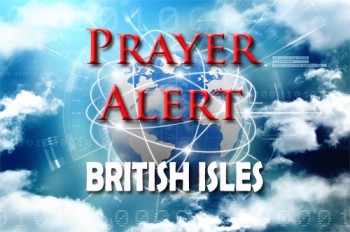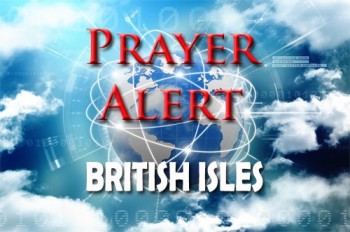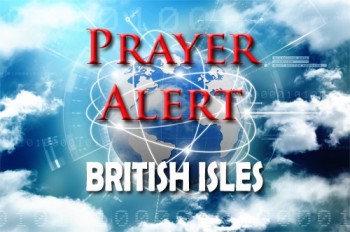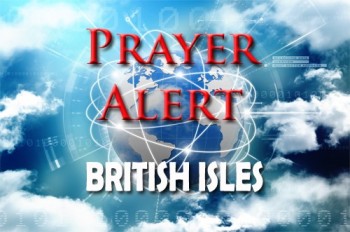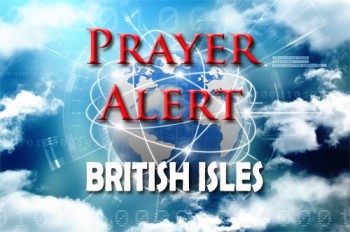Displaying items by tag: doctors
Doctors’ appointments: Streeting and BMA in major row
A row has erupted over England’s move to require all GP surgeries to offer online booking for non-urgent appointments, with Wes Streeting accusing the British Medical Association (BMA) of acting like ‘moaning minnies’. While he praised GPs for rapidly adopting the system - now used by more than 98% of practices - the doctors’ union is concerned that patient safety is at risk. The new method of booking, which all doctors have to provide on weekdays from 8:30 am to 6:00 pm, also allows patients to ask questions, describe symptoms, and request callbacks. But the BMA says the software cannot differentiate urgent from routine needs, leaving surgeries overwhelmed and increasing the risk that serious issues will not be triaged properly. Healthwatch England raised concerns about limited patient awareness, difficulties for those less digitally literate, and some practices restricting online slots. Many GPs say they are already at capacity and fear unrealistic expectations without additional resources. The Government maintains it has invested extra funds and recruited more doctors.
Many doctors struggling as GMC warns health services in critical state
NHS doctors are 'at breaking point,' with nearly a fifth reducing their hours and two in five declining extra work to avoid burnout, according to new research. A third of doctors are struggling with heavy workloads, forcing them to work extra hours regularly to meet care demands, says the General Medical Council (GMC). The GMC’s findings reveal a troubling picture of UK doctors' working lives, morale, and wellbeing. The regulator warned that overworked doctors could jeopardise patient safety. 'UK health services are in a critical state, and those who work within them are at breaking point’, stated the GMC’s chief executive. Many doctors are cutting hours and refusing additional work to protect their wellbeing, with many taking time off due to stress. The survey of 4,288 doctors showed 19% had cut hours in the past year, with 41% refusing extra duties. Alarmingly, 47% plan to reduce their contracted hours next year. GPs are the most affected, with 28% reducing hours and 48% struggling. One GP expressed disillusionment, stating, 'I used to love my job. Now I absolutely hate it. I feel exhausted and dread going to work.'
Protect children from smacking, say doctors
Children's doctors have called for the prohibition of smacking children in England and Northern Ireland, decrying current laws as 'unjust and dangerously vague’. They argue that physical punishment inflicts lasting mental and physical harm on children. While Scotland and Wales have already banned corporal punishment, England and Northern Ireland still allow parents to justify smacking as 'reasonable punishment’. Professor Andrew Rowland says, 'Changing the laws in England and Northern Ireland will give us absolute clarity and ensure there are no instances where it is acceptable or lawful to smack a child’. Challenging the Government’s reluctance, Joanna Barrett has said, 'All children deserve the same protection from assault as adults’.
Can we avoid a summer of strikes?
Whether you're waiting for a hip operation, a new passport, wondering what you're going to do with your children when their teachers are on the picket line, or are a university lecturer worried about losing pay when you protest, walkouts aren't anywhere close to coming to an end. The nurses’ union leader told her members a 5% pay rise and a one-off payment of at least £1,655 was worth accepting. But they disagreed. So strikes continue, with staff being withdrawn from emergency departments for the first time. Junior doctors are set for further industrial action and could end up on strike at the same time as nurses in England. Civil servants are likely to walk out too, having missed out on a one-off payment for 2022/3, which other workers had been granted. Dave Penman, leader of the FDA civil service union, warns the consequence will be a ‘prolonged and damaging dispute’.
Putin’s chest pains and intimidation
Vladimir Putin delayed his TV address to Russia to be urgently treated for 'chest pains'. The eventual speech the next day warned of Russia’s use of nuclear weapons and mobilising troops. The delayed broadcast allegedly happened only because doctors had urgently treated him. Comments surrounding his health have intensified in recent months. Russia’s General SVR Telegram channel routinely claims that 69-year-old Putin suffers from illnesses such as cancer or Parkinson’s disease. His mental and physical wellbeing have been in sharp focus since he invaded Ukraine. In the delayed announcement he ranted about purging Ukraine of ‘neo-Nazis’ and wanted referendums in occupied regions. But for thousands of Russians watching TV at home, the most notably worrying elements of the broadcast was the ordering of 300,000 army reservists into battle and preventing 25 million reservists from fleeing Russia. This news has shocked and alarmed even his closest confidants.
Strikes could spread
As the country experiences the largest rail strike in modern history, and staff at Heathrow Airport have voted overwhelmingly to strike in July or August, unions representing health and education have warned of future industrial action. The teachers’ union said 450,000 members would be balloted unless the government agreed to a pay rise closer to inflation. Unison said the Government could make a sensible pay award or risk a potential dispute in hospitals. The chairman of the NHS Confederation warned that a pay rise for the lowest paid NHS staff was needed to avoid ‘ worsening the NHS workforce crisis’. Transport secretary Grant Shapps dismissed calls for direct negotiations. The RMT general secretary has predicted industrial action could spread, as ‘people can’t take it any more’4269283). When the TUC demanded a pay rise for all workers, Shapps said there had been 40% salary increases over ten years. The Government plans to change the law so that employers can use agency staff during strikes to limit their impact on society.
Call for an end to home abortions
Over 600 medical professionals signed an open letter to the Prime Minister and the first ministers of Scotland and Wales, calling for the revocation of ‘at home' abortion schemes immediately, becausen of the risks to women's health and welfare. Each government has been in consultations whether to make the temporary policy permanent. Carla Lockhart MP said that the permissions granted by the Government without adequate parliamentary and public scrutiny have put women's physical and mental health at risk. 7% of British women reported being pressured into an abortion by a husband or partner. It is greatly concerning that the department of health saw fit to remove the routine in-person consultation before an abortion. Lack of sufficient ID checks over the online consultation process also poses the threat of pills being falsely obtained for another person, which raises particular concerns regarding cases of underage sexual abuse and trafficking.
BMA poll on assisted suicide
The British Medical Association is polling members on its policy on assisted suicide. Since 2006 it has been officially opposed to all forms of euthanasia and assisted suicide. However, if that changes as a result of this poll and the BMA goes 'neutral', some will see that as a green light for a dangerous change in the law. Politicians are unquestionably influenced by what medical bodies think, so it is vital for as many BMA members as possible to take the opportunity to express their support for continued opposition. Last week, a large group of doctors spoke out against shifting to neutral. Please join with us in praying that the BMA will remain opposed, and that the plans of those pushing for a law change will be stopped.
Coronavirus: church, doctors and police warnings
The Archdeacon of London has published guidance to priests about taking precautions in the light of the spread of coronavirus, principally in terms of the risks of infection arising from administering Holy Communion. Pray for God to give wisdom to churches until the infection risk is over. After a coronavirus case emerged in London, doctors there warned that the London Underground could be a hotbed for spreading the disease across the city’s extensive transport links. After a patient in isolation at Arrowe Park Hospital tried to leave, police have now been given the power to seize people in danger of spreading coronavirus and force them into isolation in handcuffs. The World Health Organisation said that the measurement of the coronavirus outbreak could be ‘the tip of the iceberg', as thousands of cases might be undetected.
Assisted dying
A legal challenge has been submitted regarding a Royal College of Physicians (RCP) poll on assisted suicide. The poll asked members where they stand on this issue, but the RCP said it would adopt a neutral stance unless there was a 60% majority either way. Until now it has been officially opposed to assisted dying. Four doctors have launched a crowdfunding page to fund a legal challenge to the poll, saying that a small minority who support assisted dying want to change the RCP's default position in an unfair way. Even if 59% of members vote to maintain opposition to a change in the law, the College will change to a neutral position anyway. The doctors argue that using a supra-majority to change a policy is, as far as they are aware, entirely without precedent. It is believed that Dignity in Dying, the campaign group for assisted dying, influenced the move.
